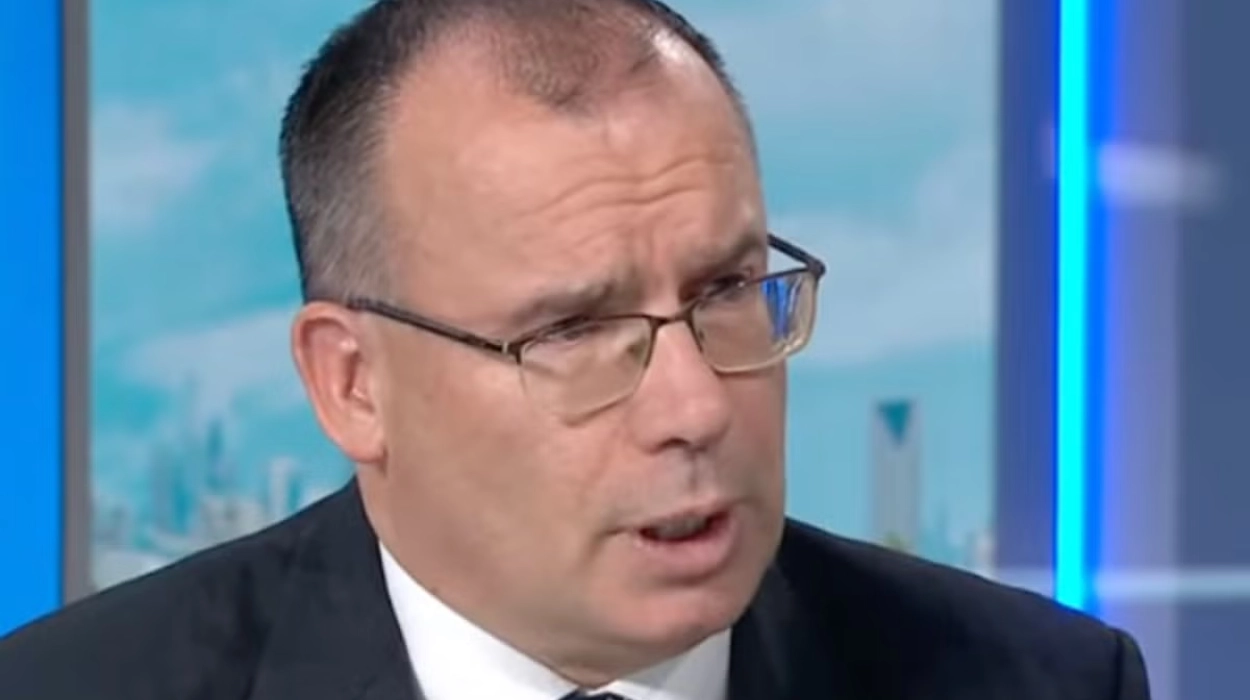UK (Parliament Politics Magazine) – Labour MP Gareth Thomas dismissed concerns over Palestine recognition, saying it aligns with legal and diplomatic norms.
As reported by Sky News, a small business minister dismissed suggestions that Prime Minister Sir Keir Starmer’s pledge to recognise Palestine risks breaching international law.
In a formal letter to Attorney General Lord Hermer, 38 peers, including legal experts, raised concerns about the legality of Sir Keir Starmer’s pledge. They argued that Palestine may not meet the statehood criteria set out in the Montevideo Convention, potentially making the recognition plan unlawful.
What did Gareth Thomas say about the UK’s Palestine recognition and international law?
The business minister denied Britain risks breaching international law, highlighting that the Montevideo Convention has not been signed by the UK.
During an interview on Sky News, he said,
“I respect the views of those lawyers, but in the end, recognition of a state is a political judgment.”
Mr Thomas stated,
“I don’t think we are in breach of international law. We’re not signed up to the Montevideo Convention. We’re clear what needs to happen.”
He said,
“And we’ve been very clear that our judgement is that the Palestinians have an inalienable right to statehood; that now is the right time to say publicly that we will recognise the state of [Palestine] unless Israel agrees to end the appalling violence that we’re seeing in Gaza at the moment, and commits to a two state solution.”
Mr Thomas added,
“And the ceasefire that can enable the huge amounts of aid we need to get aid and to feed the people of Gaza and commits to no annexation of land in the West Bank. Otherwise, we will recognise, at the UN General Assembly in September.”
What did 38 peers say in a letter to Lord Hermer on Palestine statehood?
According to a letter sent to Lord Hermer, 38 peers argued Palestine “does not meet the international law criteria for recognition of a state, namely, defined territory, a permanent population, an effective government and the capacity to enter into relations with other states.”
The letter states, “You have said that a selective, ‘pick and mix’ approach to international law will lead to its disintegration, and that the criteria set out in international law should not be manipulated for reasons of political expedience.”
The peers added, “Accordingly, we expect you to demonstrate this commitment by explaining to the public and to the government that recognition of Palestine would be contrary to the principles governing recognition of states in international law.” They pointed out the uncertain territorial borders of Palestine and the undefined government, adding that Hamas and Fatah remain bitter rivals.
Prominent signatories to the letter included:
- Lord Pannick KC Lord Verdirame
- KC Lord Faulks
- Baroness Deech (crossbench peer)
- Lord Winston (Labour)
- Baroness Altmann (Conservative)
What prompted Canada to recognise Palestine at the UN?
Canadian Prime Minister Mark Carney has confirmed that Canada will recognise Palestine as a state at the United Nations in September.
The statement comes just a day after the UK said it would recognise Palestine if Israel fails to meet specific conditions.
Mr Carney said,
“We are working ourselves, with others, to preserve the possibility of a two-state solution, to not allow the facts on the ground, deaths on the ground, the settlements on the ground, the expropriations on the ground, to get to such an extent that this is not possible.”
Michael Ellis’s views on recognising Palestine
Michael Ellis, the former Tory attorney general, said the UK’s decision to recognise Palestine as a state could face a legal challenge through judicial review.
He added,
“Keir Starmer, as prime minister, has repeatedly said that he would adhere to international law. And he’s gone further than that. He’s taken, you might think, a high moral tone.”
What did Heidi Alexander say about recognising Palestine?
Transport Secretary Heidi Alexander said,
“This is about the Palestinian people. It’s about getting aid to those starving children.”
When questioned about the release of hostages by Hamas as a precondition for statehood, she responded,
“We will be making an assessment in September and we expect Hamas to act in the same way as we expect Israel to act.”
Ms Alexander added,
“We’re giving Israel eight weeks to act. If they want to be sat at the table to shape that enduring peace in the region, they must act.”


